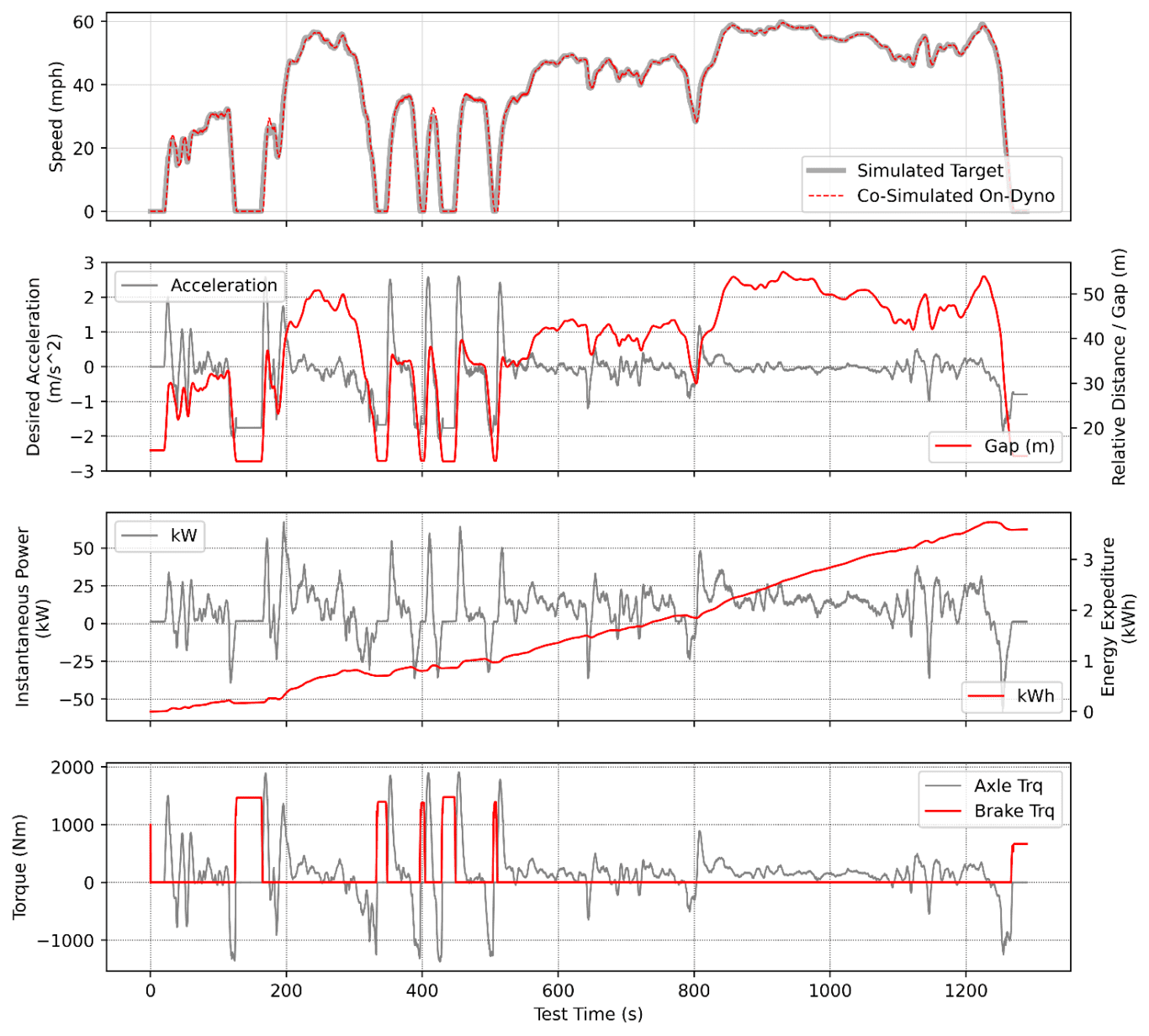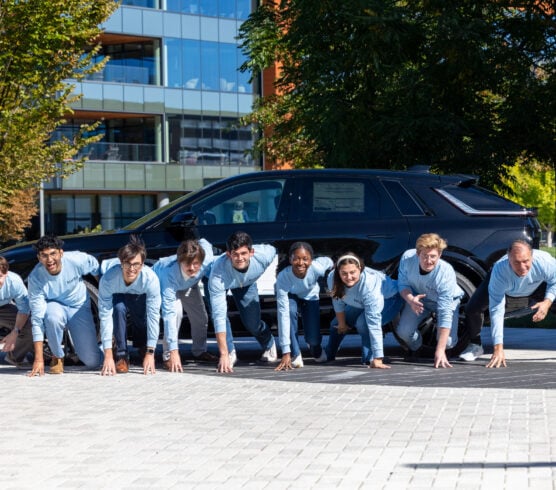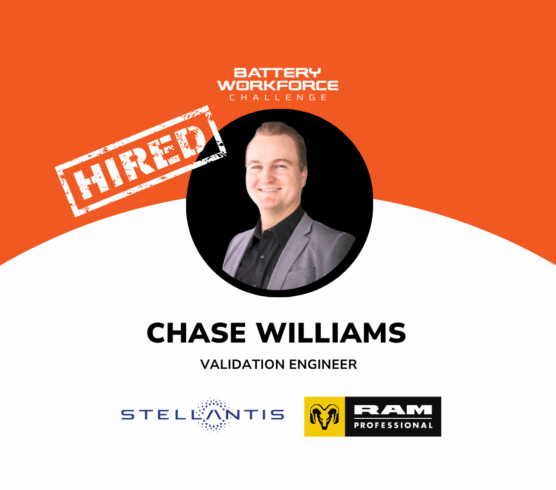Written by: Ashley Kronsell-Oller
In preparation for the EcoCAR EV Challenge testing event at the California Air Resources Board (CARB) in March 2025, a comprehensive test procedure for vehicle-in-the-loop dynamometer testing is being deployed by researchers at Argonne National Laboratory to evaluate Adaptive Cruise Control (ACC) energy consumption of 13 unique prototype electric vehicles.
Researchers at Argonne have been developing numerous test frameworks and software tools to perform repeatable energy testing in simulation, dynamometer, and track environments through US Department of Energy (DOE) Energy Efficient Mobility Systems (EEMS) funding. The Argonne XIL testing methodology is centered around Argonne RoadRunner software in addition to software and hardware from The MathWorks and dSPACE. In support of this event, former EcoCAR EV Challenge Connected and Automated Vehicle (CAV) Lead, Dr. Nick Goberville, has stepped into a new role with Argonne as a CAV Research Engineer to lead research team members towards extending and expanding Argonne XIL methods for CARB testing purposes. In the coming months, this research team will be deploying methods capable of testing a highly diverse and unique field of university-developed CAV prototype vehicles using approaches that are flexible enough to accommodate a variety of vehicle designs and test facilities.
According to Goberville, “the methodologies we have established are building upon a foundation of standard CAV testing protocols and interfaces that have been developed at Argonne. With these methodologies, we are creating new ways of evaluating the energy impacts of automated driving features such as Adaptive Cruise Control.”
The researchers are aiming to validate the communication of all test hardware, which includes various donated components by EcoCAR competition sponsors. With the help of EcoCAR sponsor donations, we were able to architect our test framework using MathWorks’ Simulink, Speedgoat hardware and the dSPACE AUTERA. The Speedgoat has been used useful for rapid prototyping of the custom ACC controller, while the AUTERA has been instrumental in our Hardware-in-the-Loop (HIL) testing prior to going on the dynamometer.
Last month, the research team successfully completed the Vehicle-in-the-Loop dynamometer testing of an automated vehicle at Argonne. The team was able to run and complete 3 full tests where the vehicle and all of its components performed as intended.

Over the next two weeks, Propulsion Controls and Modeling (PCM) lead, David Ord, and Dr. Goberville will travel to CARB and instrument a LYRIQ for further testing. The research team will be adapting this dynamometer-test methodology for track testing using an Argonne-developed automated scenario replay feature which allows the lead vehicle to automatically follow drive cycles, ensuring the tests are conducted in a repeatable and accurate way. The track testing will be complete in collaboration with the General Motors EcoCAR Organizers at the Milford Proving Ground in 2025.
“Collaboration between industry, government, and academia is essential to advancing this framework for CAV testing. By bringing together diverse expertise and various sponsor donated hardware and software, we can build more accurate, efficient, and impactful solutions that pave the way for innovative programs like the EcoCAR EV Challenge,” said Goberville. “This collective effort is not only advancing our methodologies, but also preparing the next generation of engineers to lead in sustainable mobility.”
Together, EcoCAR Sponsors and Argonne researchers are laying the groundwork for successful testing procedures to be deployed during the EcoCAR EV Challenge, ensuring that all communication frameworks and custom messages are effectively implemented ahead of EcoCAR team testing during Year 3 competition.



